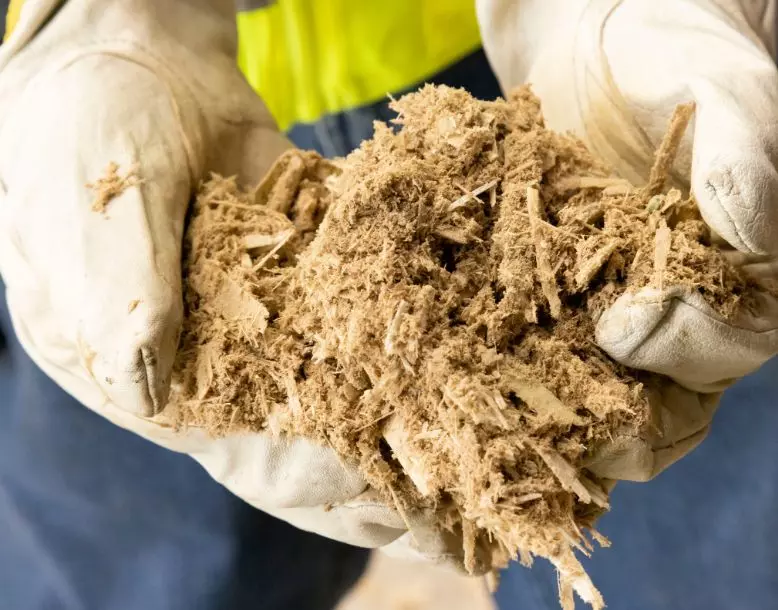Embracing a Holistic Approach to Sustainability
Sustainability is increasingly a pressing concern for communities, industries and governments alike.
There is an imperative need to optimize water, waste and energy use, and there is transformative potential in approaching these areas holistically. By recognizing the interconnectedness of these critical resources, organizations can unlock significant environmental and economic benefits. This is where Veolia is uniquely positioned to help our clients.
Unlocking Synergies in Water, Waste, and Energy
Veolia’s unparalleled cross industry expertise in the management of water, waste and energy uniquely positions us to develop solutions that unlock the energy potential of organic and, in some cases, inorganic wastes.
Finding Built-In Opportunities
Innovative water management strategies that emphasize water reuse and conservation can also come with built-in energy efficiency and waste reduction opportunities. For instance, organic waste from food production or wastewater treatment can be converted into biogas or biofuels, contributing to renewable energy generation and zero-waste goals.
Industrial operations can implement sustainable water practices that minimize usage and treat wastewater effectively to be eligible for reuse on-site or in nearby agriculture irrigation. Not only does this reduce water impact, but also transportation costs, emissions and waste.
Recycling and Resource Recovery
Similarly, optimizing waste management processes, including recycling and resource recovery, can lead to energy production, reduced overall environmental footprint and enhanced circularity. For example, as renewable energy generation capacity continues growing, retired wind turbine blades, other composite materials, as well as recalled products, are finding new life as engineered fuels replacing the use of coal in cement kilns, reducing waste, carbon emissions and water usage.
It is this kind of multifaceted, collaborative approach that unlocks new opportunities for improved sustainability across industries and communities.
Engineered Fuels
From wind turbine blades to non-recyclable mixed plastics, industrial debris and biogenic materials, learn how Veolia's unique offering provides the opportunity to reuse non-hazardous industrial waste - that might otherwise be landfilled - to engineer a repurposed product.

Digitalization Enables Optimization
Organizations that adopt a triple net zero approach aiming for net zero water usage, zero waste to landfill, and net zero energy consumption are finding digitalization to be a key enabler. Technologies to optimize equipment maintenance, track and analyze system inputs and outputs, maximize energy efficiency and embrace renewable energy sources can pave the way towards triple net zero.
Using augmented reality to better manage equipment maintenance in real-time
By embracing digital innovation, industrial operations can be made more resilient through Veolia’s remote operations support for industrial water and wastewater. Measuring and analyzing facilities’ central utilities and assets can provide valuable data to prioritize and track efficiency improvements, such as identifying energy-intensive or water-intensive assets, as well as assessing system inputs and outputs.
Material Reuse and the Circular Economy
An integral part of the holistic approach to sustainability is the promotion of material reuse and the circular economy. As the sources of heating, cooling and transportation move toward electrification, infrastructure to repurpose and recycle materials from electric vehicle batteries, solar panels and wind turbine blades that support this movement is growing. More common consumer electronics are also recycled and repurposed, such as lamps, ballasts, smaller batteries, and much more.
In the manufacturing sector, Veolia helps clients recover, regenerate and reuse a variety of resources every day. Veolia’s sulfuric acid regeneration process takes one of the most commonly-produced industrial chemicals in the world and transforms it from “spent acid” back into high-quality sulfuric acid. Used oil or oily residuals can be recovered and reused within refineries to produce refined products and coke. KOH, a neutralization agent used in refinery alkylation and electronic chemicals production, can be recycled and reused. Veolia North America also owns and operates a nationwide network of industry leading services and facilities to enable solvent recycling. Across North America, Veolia is enabling the growth of the circular economy by working together with clients to rethink waste as a resource.
The circular economy is a solution for industry and business at all scales to reduce, reuse and recycle waste. This solution extends beyond reducing trash in landfills, reusing products and recycling plastics.
For Communities and Society
The communities where we all live, work and play are kept healthier when we work together to minimize our impacts on our surrounding ecosystems. By recovering valuable resources from end-of-life products, we can reduce reliance on virgin materials and minimize waste generation. This circular economy approach not only conserves resources but also drives economic growth and job creation.
Veolia is at the forefront of these initiatives, working with partners to develop innovative solutions that maximize material reuse and resource recovery.
Impact for the Future
The journey towards holistic sustainability requires collaboration and collective action. Communities, industries, and governments must come together to develop comprehensive strategies that address the complex challenges of water, waste, and energy management.
Veolia is here to support organizations in their pursuit of a triple net zero future, offering a diverse range of solutions and expertise to guide them towards a more sustainable and resilient tomorrow.


